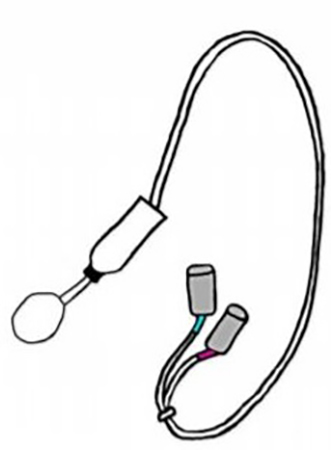Patient EducationMar | 16 | 2020
All About Your Anorectal Manometry Test
What is an anorectal manometry test?
An anorectal manometry test is a test that helps us understand the way your muscles and nerves inside your bottom (rectum) work.
Why do I need an anorectal manometry test?
You might need an anorectal manometry test because you have trouble going to the bathroom. Many people have trouble going to the bathroom, including problems like:
- Constipation
- Having accidents with stool
If you had surgery on your bottom, you might also have this test to check how well your muscles and nerves work after your surgery.
What should I do to get ready for the test?
Your gastroenterologist will tell you what you need to do to get ready for your test. A gastroenterologist is a doctor who helps people who have problems with their stomachs or intestines, or their guts.
Before your test, you need to make sure there is no stool inside your bottom. You might need to get all of the stool out by:
- Taking medicine called a laxative
- Doing an enema (a liquid you squeeze into your bottom to help clean the stool out)
- Changing your laxatives, if you take them every day
Where will I have the test done?
Your test will be done in the Pediatric Endoscopy Unit on the 4th floor of the Gray Building.
What happens before the test?
Before the test, you will come to the Pediatric Endoscopy unit where our front desk staff will greet you. Then, you will meet your care team, which includes:
- A nurse
- A gastroenterologist (doctor who cares for the stomach and intestines)
- A Child Life specialist from the Child Life & Pediatric Integrative Therapies Program at MGfC, who will help you during your time at the hospital. They will have lots of fun activities for you to do before the test. The Child Life specialist will be with you before, during and after your test to make sure you’re as comfortable as possible.
You can have your parent or family member stay with you, if you’d like. You can also bring your favorite books, music, stuffed animals or other small things from home to keep with you before the test.

What happens during the test?
Your parent or family member can sit with you during the test, if you’d like. The test should take about 20 minutes. Here is what will happen during the test:
- First, you will change into a hospital gown. Then, you will lie down on a bed in the room where the test is done. The gastroenterologist and nurse doing the test will make sure you’re comfortable before starting the test.
- The gastroenterologist will gently put a small tube with a small balloon on one end into your bottom. This might be uncomfortable at first. The other end of the balloon is attached to a computer that tells us how your muscles and nerves work.
- The gastroenterologist will slowly blow up the balloon with air. Then, he or she will let air out of the balloon. The gastroenterologist might ask how you’re feeling during the test or when you feel certain things, like when the balloon blows up or lets air out.
- When the test is done, the gastroenterologist will gently take the tube out of your bottom.
What happens after the test?
After the test, the nurse will go over any instructions with you before you leave. The gastroenterologist will also go over your test results with you. Then, you can go home. You can go back to your favorite activities as soon as you’d like.
If you have pain, feel uncomfortable or are worried about anything, please call us at (857) 238-7351. We will always try to help you!
When will I know my test results?
You should know your test results before you go home. Your gastroenterologist will also talk about what you should do at your next follow-up visit.
In An Emergency...
You can call a pediatric gastroenterologist any time of the day or night.
From 8 a.m.-5 p.m. Monday-Friday, call the Pediatric Gastroenterology unit at (857) 238- 7350.
After 5 p.m. and on weekends, call the hospital operator at (617) 726-2000. Ask to page the “Pediatric GI Fellow on call.”
Rev. 1/2016. This handout is intended to provide health information so that you can be better informed. It is not a substitute for medical advice and should not be used to treat any medical conditions.
Related Pages
Type
Patient Resources
Patient Resources for the Pediatric Neurogastroenterology Program
Patient Resources
Patient Resources for Pediatric Gastroenterology and Nutrition
Appointments and Referrals
Request an appointment or second opinion, refer a patient, find a doctor or view test results with MGfC's secure online services.

